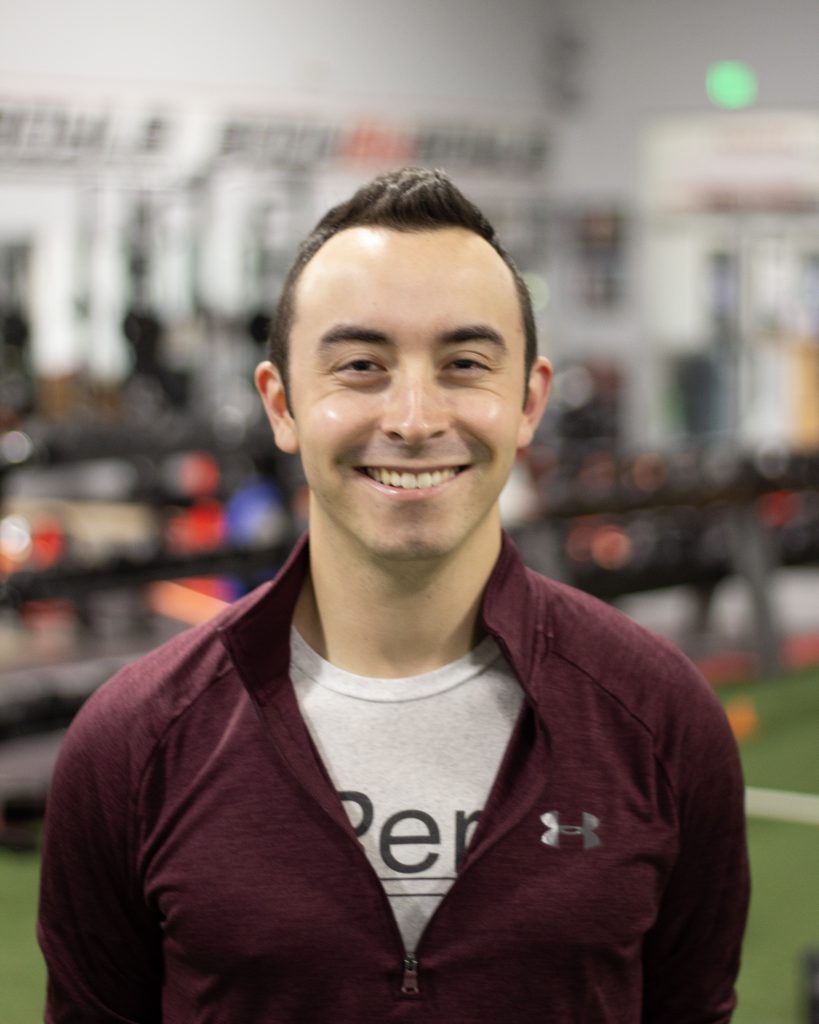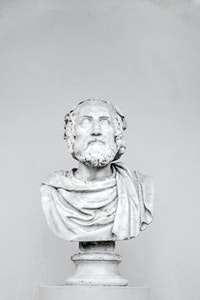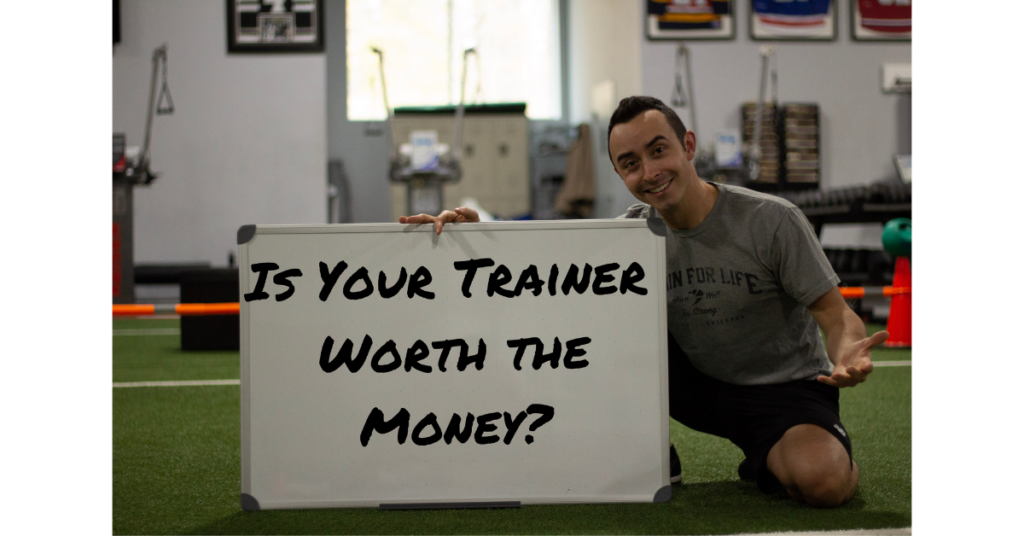A personal trainer is expensive. One workout with a trainer could cost $85-150. If you workout twice per week for four weeks, that could cost $680-1,200. You’re choosing to spend a lot of money for your personal trainer. Wouldn’t you like to know if your trainer is worth your money before it’s too late?
Well lucky for you, I’m going to show you how to tell the difference between a good trainer and a bad trainer within your first workout.
When you start working with a trainer, ask yourself these questions.
1. Is Your Trainer Professional?

Why Do They Need to be Profesional?
Your trainer needs to be professional because it’s a sign of dependability. When you can depend on your trainer, you’ll have peace of mind in knowing that you’re getting what you paid for.
Don’t think being professional is important? Imagine this. If your new trainer showed up late without reasonable cause, made a rude comment about your body, and used offensive language, could you confidently say, “I can depend on them to give me my money’s worth?”
No.
When you are paying a trainer for a service, you expect them to meet certain standards (e.g. show up on time, dress well, make eye contact, etc.). If they don’t meet those standards, you can’t depend on them to deliver.
On top of that, your trainer must be professional because you’re going to have conversations around sensitive topics. For example, I’ve talked to clients about eating disorders, flabby arms, bodyweight, and the size of their glutes. These topics revolved around their body and how they wanted to change it. How can your trainer know what to change if you don’t talk about it? Plus, how can you feel comfortable having those conversations if your trainer isn’t professional? You can’t.
How Do You Know if They’re Professional?
I’m sure you know what’s professional and what isn’t, but here are a few things you can look for in a trainer:
- Shows up on time.
- Clothes fit and match well.
- Good personal hygiene.
- Introduces themselves with a smile.
- Makes eye contact.
- Is prepared for you session (e.g. has a program, equipment is set up, etc.).
- Respects your wants and needs as they pertain to fitness and nutrition.
- Talks about your struggles with fitness and nutrition in a respectful manner.
- Provides a balance of positive and constructive feedback.
- Takes responsibility for his/her mistakes.
2. Is Your Trainer Knowledgeable?

Why Does Your Trainer Need to be Knowledgeable?
Your trainer needs to be knowledgeable because knowledge breeds skills and confidence. You wouldn’t want to work with someone who lacked skills and confidence, right? I mean, would you allow Dr. Francis to perform surgery on you?
“You nervous? Yeah me too.” Gets me every time.
You wouldn’t let Dr. Francis cut into you because he’s not confident he can help you. Imagine if that was your trainer. Here’s what your initial conversation might look like:
You- “I’d like to lose weight, so I can look good for my wedding. Can you help me?”
Trainer- “Maybe.”
You- “Maybe?”
Trainer- “Do you know what to do?”
You- “Not really.”
Trainer- “Same. Guess we’ll figure it out.”
You wouldn’t trust that trainer to help you achieve your goals, and you wouldn’t feel comfortable shelling out $85-150/hour for that kind of service. It’s important your trainer knows how the body works and what you need to do to accomplish your goals.
How Do You Know if They are Knowledgeable?
This can be tricky because someone could be knowledgeable but lack the communication skills to convey their knowledge (more on this later). However, here are a few things you can ask your trainer to see if they’re knowledgeable:
What’s your training philosophy?

A knowledgeable trainer has a clear training philosophy. In other words, they have a North Star that helps them decide the best way to train you. They should be able to share their philosophy, so you can understand it.
Here’s my training philosophy:
Always train for the long-term. Move well and get strong. Use methods that are low risk/high reward and most likely to facilitate sustainable results.
What’s the best piece of continuing education you did this year?

This question reveals whether they participate in continuing education. A knowledgeable trainer is always trying to improve and find the best ways to train you.
For example, the best continuing education I did in 2020 was the Online Fitness Business Mentorship. It taught me how to build an online coaching business, so I can help people who can’t train with me in-person. The best continuing education I did in 2019 was the Titleist Performance Institute level one certification. I learned about the connection between a person’s body and their golf swing.
Who are your mentors in the fitness industry?
Every knowledgeable trainer has at least one mentor. In fact, every high-performing professional, regardless of the industry, has a mentor. Warren Buffett had Benjamin Graham; Luke had Obi-Wan; Hercules had Phil. You have your trainer, and your trainer has one too.
My biggest mentors have been Mike Boyle, Drew McConhaha, and Ken Whittier. Mike taught me the X’s and O’s of strength training. Drew taught me the importance of ABC (Always Be Coaching) and bringing the energy. Ken taught me the best way to correct someone’s technique by building them up and not breaking them down. All three of them are in the back of my head when I coach.
If they can answer those three questions without sounding like a bullshit artist, you found a knowledgeable trainer.
3. Does Your Trainer Have the Heart of a Teacher?

Why Do They Need to Have the Heart of a Teacher?
Your trainer needs to have the heart of a teacher, so you can learn how to workout and enjoy the process. If your trainer doesn’t have the heart of a teacher, you’re going to struggle learning and enjoying the process.
How Do You Know if They Have the Heart of a Teacher?
You can tell if someone has the heart of a teacher within five minutes of your first workout.
Let me show you:
You’re new at the gym. You don’t know where to go, what to do, or who to talk to. The coach walks in and says, “Sit on your foam roller and start rolling!”
You think, “What’s a foam roller?”
Everyone else knows what they’re doing. They crossed their legs, leaned to one side, and started rolling back and forth. You mimic them but wonder, “Am I doing this right?”
You’re desperate for instruction, so you stop and look at the coach.
The coach glares at you and says, “Come on. Keep rolling.”
How would that make you feel? Upset? Embarrassed? Hurt? Not only did your feelings get hurt, but you didn’t learn anything, and you didn’t get a chance to enjoy the process. That’s not how you want your first day to go.
If your trainer has the heart of a teacher, it would look something like this:
Before the workout starts, your trainer walks up to you and says, “Hi! I’m Nico, and I’ll be your trainer today. I know you’re new, so you might feel a little nervous. That’s 100% okay. Everyone’s nervous on their first day. Tell you what. We’re about to foam roll. Sit right next to me, and I’ll walk you through the whole thing. How does that sound?”
How would that make you feel? Welcomed? Cared for? Like you’re going to be okay? Good. That’s how your trainer should make you feel on your first day.
In essence, a trainer with the heart of a teacher knows what it’s like to be a beginner. They’re patient, empathetic, and have a desire to make you better. As a result, you get a better training experience.
4. Do You Want to Come Back?
This is the most important question. At the end of your workout, ask yourself, “Do I want to come back?” You’ll realize that the workout doesn’t mean anything if you don’t like your coach. They could have given you the best workout of all-time, but if you didn’t enjoy them as a person, you’re not going to want to come back.
Take Coach Quality and Coach Crummy, for example. Coach Quality has twenty years of experience coaching high-level athletes, has gone to every course imaginable, and can help a paraplegic walk again. However, he’s boring, rude, and not pleasant. Despite his strength training skills, his business is dying because people don’t come back after their free trial.
On the other hand, the workout could have been awful, and you could still want to come back. Coach Crummy started his gym after passing his personal trainer certification exam. He has no experience coaching other people, but he’s the life of the party. He brings the energy, makes people laugh, and always shows you a good time. However, he doesn’t know the difference between a squat and a deadlift, and he hasn’t attended any continuing education courses since he got certified. Despite his awful training methods, his business is killing it because people keep coming back for him. Not the workouts.
At the end of your workout, ask yourself if you want to come back. If you do want to come back and your trainer checks off the rest of the boxes, then I’d say you have a good trainer.
Final Thoughts
You deserve a good trainer. With a good trainer, you have unlimited potential. You can lose weight, get strong, feel good, and have an enjoyable and educational experience at the same time.
When you hire a new trainer, ask the following questions:
- Are they professional?
- Are they knowledgeable?
- Do they have the heart of a teacher?
- Do you want to come back?
If you can answer yes to all of these questions, then you found a good trainer, and you should be thankful.
I hope this article provides you with clarity in what to look for in a trainer, and I wish you success in your fitness journey. The first step is hard, so to help you take action with as little effort as possible, I wrote a free weight loss guide for you. Read it so you can understand the difference between quality and useless fitness information.

